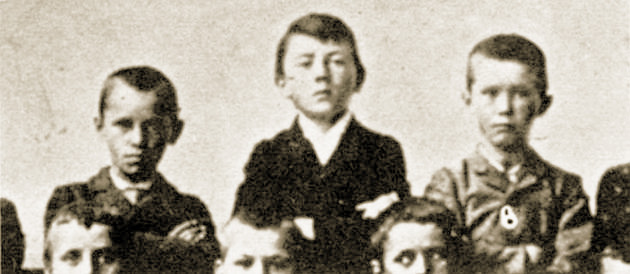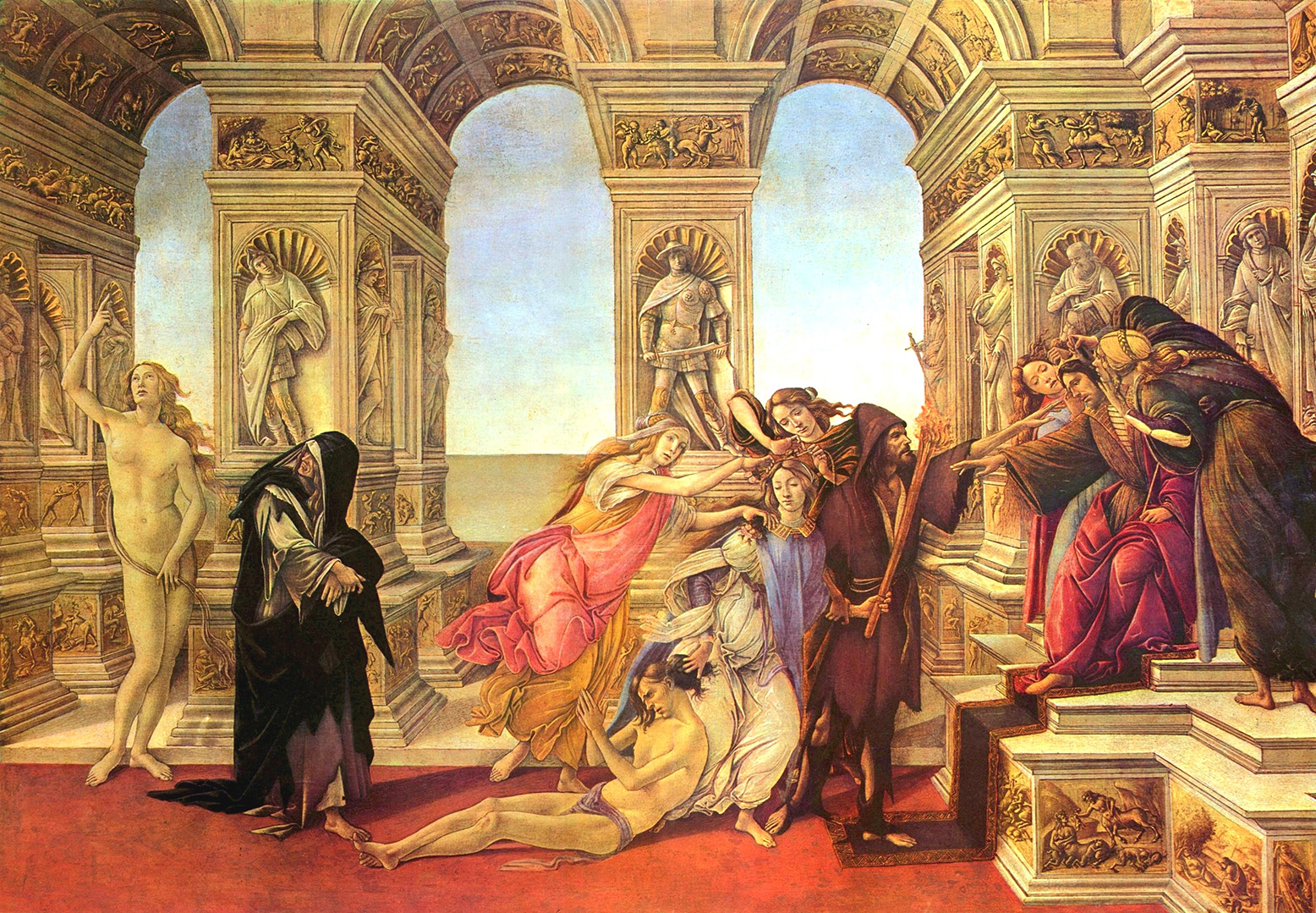
Night of 8th-9th January 1942
Childhood memories—Religious instruction—The Abbé Schwarz — “Sit down, Hitler!” — The story of Petronella.
In Austria, religious instruction was given by priests. I was the eternal asker of questions. Since I was completely master of the material, I was unassailable. I always had the best marks.
On the other hand, I was less impeccable under the heading of Behaviour. I had a particular liking for the delicate subjects in the Bible, and I took a naughty pleasure in asking embarrassing questions.
Father Schwarz, our teacher, was clever at giving me evasive answers. So I kept on insisting until he lost his patience. One day—I’ve forgotten with reference to what—he asked me if I said my prayers in the morning, at midday and at night. “No, sir, I don’t say prayers. Besides, I don’t see how God could be interested in the prayers of a secondary schoolboy.” “Sit down, then!”

Every pupil took to some new occupation. For my part, I used to excite him by waving pencils in the colours of Greater Germany. “Put away those abominable colours at once!” he’d say. The whole class would answer with a long howl of disapproval. Then I would get up and explain to him that it was the symbol of our national ideal. “You should have no other ideal in your heart but that of our beloved country and our beloved house of Hapsburg. Whoever does not love the Imperial family, does not love the Church, and whoever does not love the Church, does not love God. Sit down, Hitler!” If there hadn’t been a few teachers who would intercede for me on occasion, the affair would have ended badly for me.
Before Easter we had lessons to prepare us for confession. It was a tremendous rag. Often I promised myself to moderate my ways, but I couldn’t help it, I couldn’t endure all those hypocrisies. I can still see that Schwarz, with his long nose. I saw red when I looked at him. And I retorted as best I could! One day my mother came to the school, and he took the opportunity to pounce on her and explain that I was a lost soul. “You, unhappy boy…” he apostrophised me.
“But I’m not unhappy, sir.”
“You’ll realise you are, in the Next World.”
“I’ve heard about a scientist who doubts whether there is a Next World.”
“What do you (in German, ‘Du’) mean?”
“I must inform you, sir, that you are addressing me as ‘thou’.”
“You won’t go to Heaven.”
“Not even if I buy an indulgence?”
I was very fond of visiting the cathedral. Without my realising it, this was because I liked architecture. Somebody must have informed Father Schwarz of these visits, and he supposed I went there for some secret reason. The fact was, I was full of respect for the majesty of the place. One day, on leaving, I found myself face to face with the priest. “And there was I thinking you were a lost soul, my son! Now I see you’re nothing of the sort.”
At Steyr we had a Jew as teacher. One day we shut him up in his laboratory. In his class things were like in a Jewish school— everything was anarchy. This teacher had no authority at all. The boys were afraid of him at first, so it seems—because he used to howl like a madman. Unfortunately for him, one day he was caught laughing immediately after being angry. The boys realised that his bouts of anger were mere play-acting, and that was the end of his authority.
I always had the habit of reading during lessons—reading books, of course, that had nothing to do with the aforesaid lessons. One day I was reading a book on diseases caused by microbes, when the teacher pounced on me, tore the book from my hands, and threw it into a corner. “You should take an example from me, and read serious works, if read you must.”
Steyr was an unpleasant town—the opposite of Linz. Linz, full of national spirit. Steyr, black and red—the clergy and Marxism. I lodged with a school-companion in Grünmarkt, No. 9, in a little room overlooking the courtyard.
After the examinations, we organised a great party. It’s the only time in my life I’ve been drunk. I had obtained my certificate, next day I was to leave Steyr and return to my mother. My comrades and I secretly gathered over a quart of local wine. I’ve completely forgotten what happened during that night. I simply remember that I was awoken at dawn, by a milk woman, on the road from Steyr to Karsten. I was in a lamentable state when I got back to the house of my crux. I had a bath and drank a cup of coffee. Then Petronella asked me whether I had obtained my certificate. I wanted to show it to her, I rummaged in my pockets, I turned them inside out.
Not a trace of my certificate! What could I have done with it, and what was I to show my mother? I was already thinking up an explanation: I had unfolded it in the train, in front of an open window, and a gust of wind had carried it off! Petronella did not agree with me, and suggested that it would be better to ask at the school for a duplicate of the document. And, since I had drunk away all my money, she carried her kindness so far as to lend me five gulden.
The director began by keeping me waiting for quite a long time. My certificate had been brought back to the school, but torn into four pieces, and in a somewhat inglorious condition. It appeared that, in the absent-mindedness of intoxication, I had confused the precious parchment with toilet paper. I was overwhelmed.
I cannot tell you what the director said to me, I am still humiliated, even from here. I made a promise to myself that I would never get drunk again, and I’ve kept my promise.
(G. D. asked whether any of Hitler’s teachers had witnessed his rise to power.) Yes, some of them. I was not a model pupil, but none of them has forgotten me. What a proof of my character!





